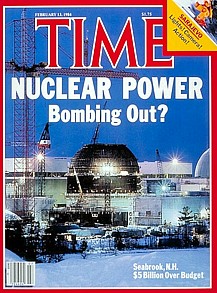We already saw that private investment is funding a 100 acre 10 MW solar farm with Cobb EMC as a customer. What does that mean for Cobb EMC’s direction? How big is Cobb EMC, anyway? And what does all this mean for Georgia Power, and for solar power in Georgia and all the jobs it can produce? What does it mean for everyone running for the Georgia legislature?
 Kristi E. Swartz wrote for the AJC 16 April 2012, Solar project could be a catalyst for more if policies allow it,
Kristi E. Swartz wrote for the AJC 16 April 2012, Solar project could be a catalyst for more if policies allow it,
“I always thought solar power was something further out for Georgia. We just weren’t in the right time,” said Chip Nelson, chief executive officer of Cobb EMC. “The way things have been moving in the utility industry, particularly the last two or three years, I find that we’re just ripe for it.”
Ripe indeed! Coal is dead. Nuclear is going down.  Solar will eat the lunch of utilities that don’t start generating it. It’s time for utilities to get out in front and generate their own solar power. Austin Energy continues to show the way in Texas with a 30 MW solar farm. Now Cobb EMC can do the same for Georgia.
Solar will eat the lunch of utilities that don’t start generating it. It’s time for utilities to get out in front and generate their own solar power. Austin Energy continues to show the way in Texas with a 30 MW solar farm. Now Cobb EMC can do the same for Georgia.
Nelson isn’t some fresh outsider: he’s a Cobb EMC lifer. According to Patty Rasmussen in Georgia Trend February 2012, Power Players: Taking Over At Cobb EMC,
Nelson worked for Cobb EMC for 37 years, most recently serving as chief operations officer. He stepped in as interim CEO in February 2010 and decided to apply for the full-time position.
And Cobb EMC is not small. According to Kim Isaza in MDJonline.com 20 July 2011 New Cobb EMC chief Nelson ready to ‘turn page’ on past costly litigation, divisiveness,
Continue reading








